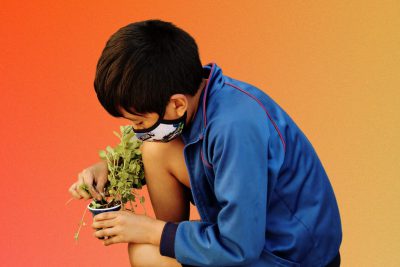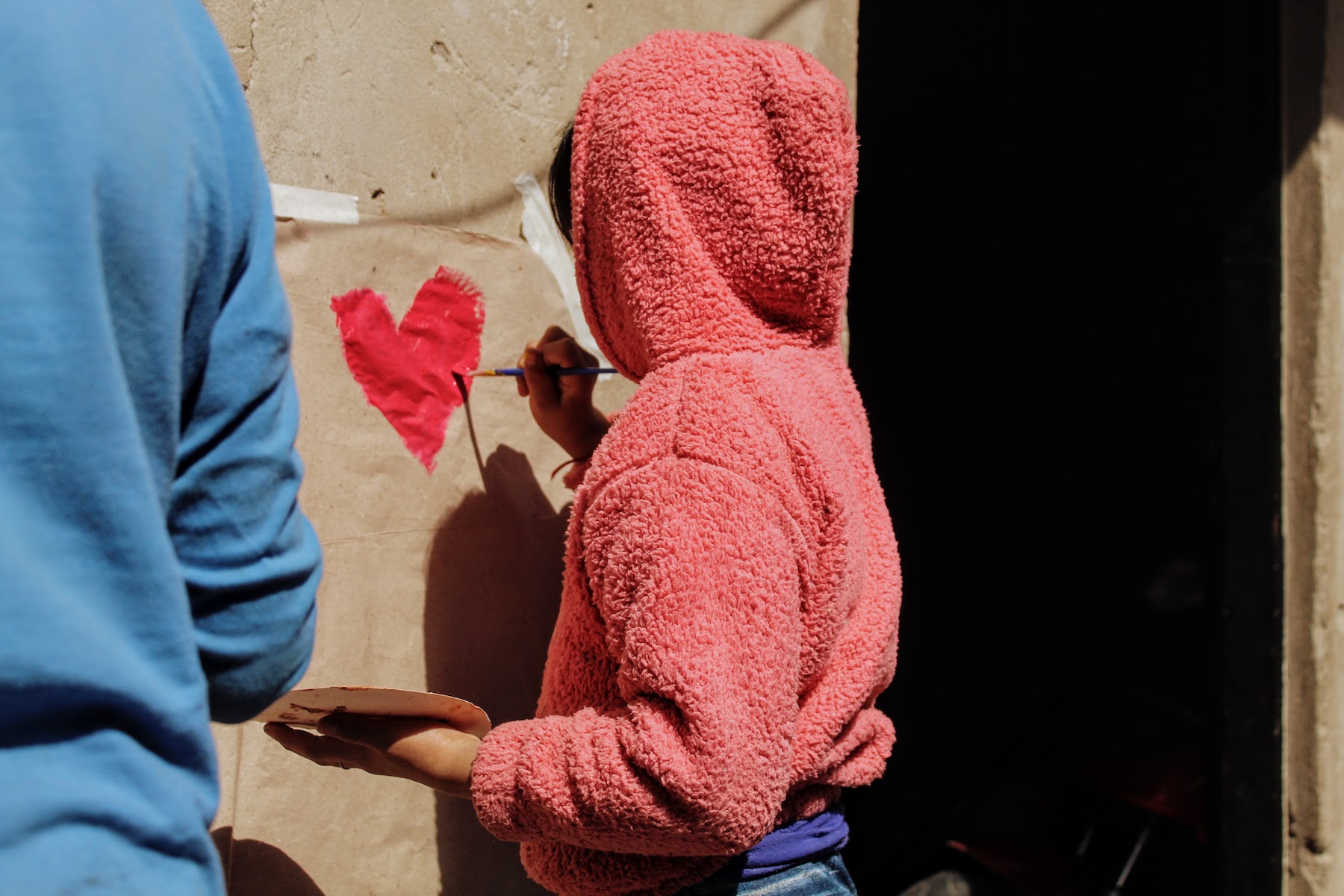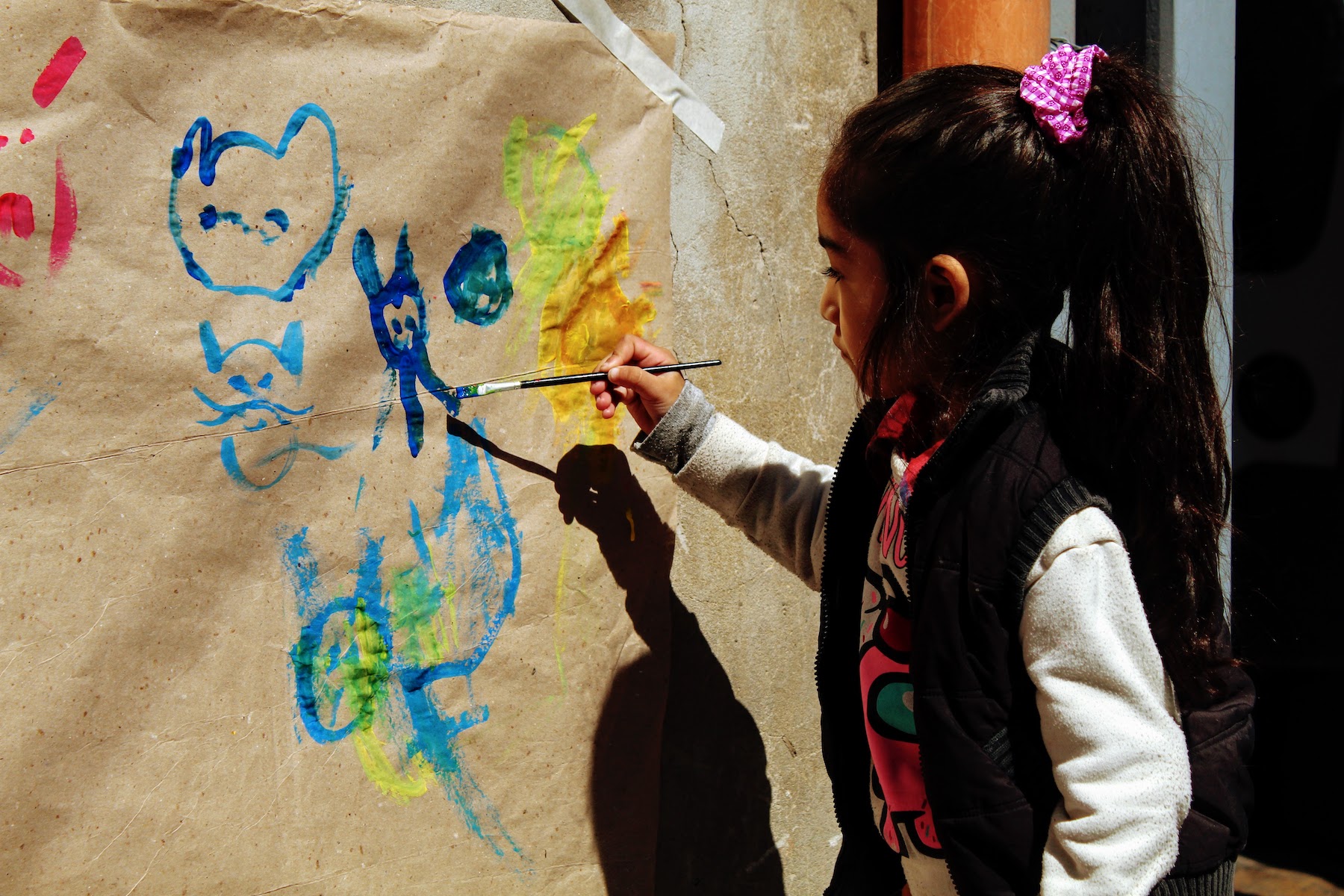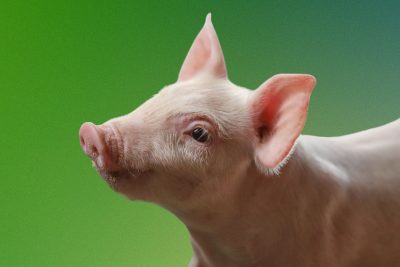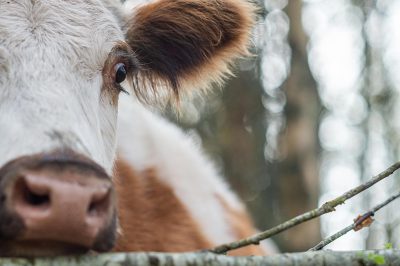On the tenth day of our global food justice initiative, we are in Argentina, where campaign manager Jacqueline Guzmán is coordinating a cooking workshop for children. Hosted by Merendero Arcoiris (Rainbow Soup Kitchen) we will serve vegan cookies, play games, read animal-related stories and sing songs about veganism. This is why we advocate teaching children about speciesism, how it is destroying our health and our planet, while affirming that oppression and discrimination are unacceptable in society.
Teaching Anti-Discrimination
An upbringing with an anti-speciesist perspective is about teaching children not to discriminate against other people and animals based on criteria that do not merit such discrimination, such as their gender, species and skin color. It has to do with educating children about the real origin of the food that feeds them, and about how such choices impact the environment, and the lives of people and animals, about new ways of eating, of connecting with food, understanding its origin, the production systems involved, and thus naturalizing respect and a consideration for animals.
Most communities already teach children the importance of compassion, caring for others and the natural world, and sharing what we have, but when it comes to food, these important principles are all-too-often forgotten or abandoned. When we incorporate food issues into the wider context, we can truly be consistent in providing an education that moves away from discrimination and violence.
It is the responsibility of the adult world to convey the importance of harmonious coexistence between species, taking into account the large number of negative consequences that animal discrimination has, including: the impact of the animal agriculture industry on the environment and on the health of the population, inequality in the distribution of food to all sectors of society, and the perpetuation of animal suffering. If we want a better, safer, kinder future for future generations, we need to play our part in guiding them to it.
Personal Choices Impact the World
A plant-based lifestyle protects us all from the negative global health impacts associated with animal agriculture, such as the emergence of antibiotic-resistant pathogens and the mutation and spread of zoonotic diseases. The entire world has been affected by Covid-19 but has so far failed to understand that three-quarters of emerging infectious diseases in people come from our treatment of animals, and that both animal agriculture and the consumption of wild animals allow for many such diseases to emerge. We must address these global health risks urgently, but they will only be mitigated when we stop farming and eating animals.
The Covid-19 pandemic has laid bare the social health inequalities that exist worldwide. People without access to healthy, nutrient-rich diets have suffered disproportionately. Research shows that those who eat plant-based diets have been better protected from the impacts of Covid. Eating plant-based, therefore, not only mitigates the risk, it mitigates the negative effects. Teaching children about healthy nutrition is essential for global health, therefore, as well as their own.
A Consistent Message of Compassion and Care
The first years of a child’s life are key in the development and formation of ideas, principles and habits. This is the best time to introduce a new educational paradigm that has anti-speciesism at its heart. In doing so, we can truly move towards a world where no one is caused deliberate harm or oppressed, no matter who they are or the species to which they belong. We can move towards a world where we have an ethical commitment to our interaction with the environment, rather than the colonisers’ view of simply plundering and destroying it for our own ends.
All of this starts with a shift in our treatment of non-human animals as we begin to demolish the anthropocentric vision that prevents us from seeing them as equals and instead treats them as resources at our disposal.
Says Jacqueline: “Educating with the truth and debating with children so that they can build their own opinions in relation to this and many other issues related to discrimination and oppression, and consider them as active actors in the construction of a more just society, is what a vegan upbringing seeks.”
Veganism is the future. And the future starts today.
